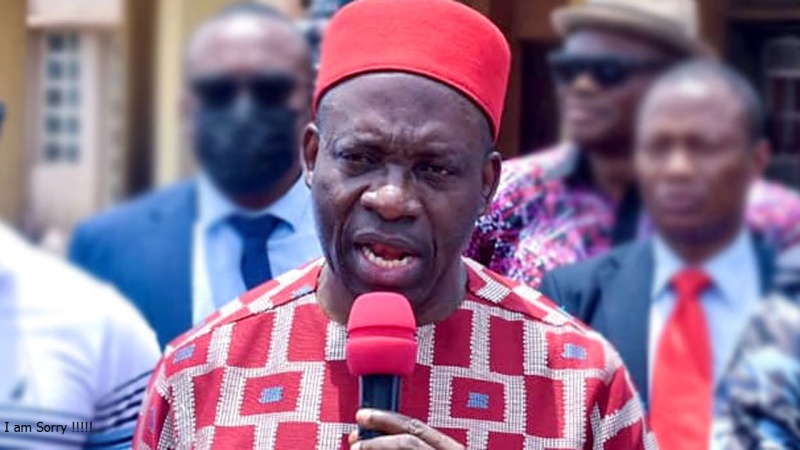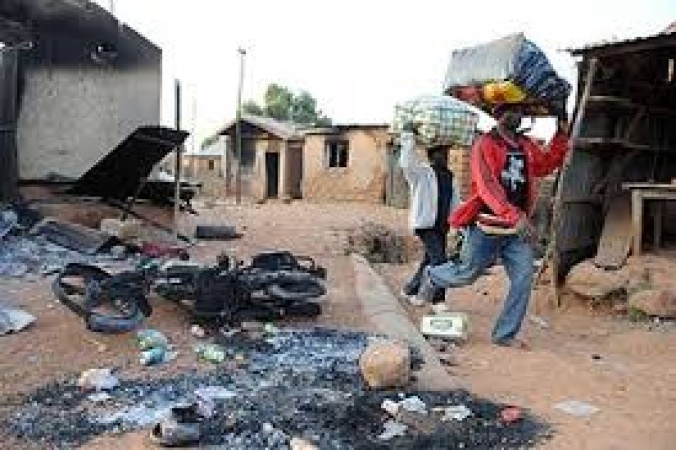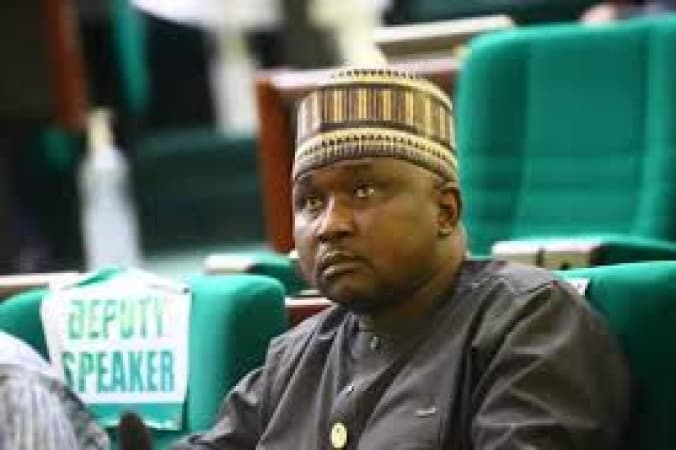

























Loading banners


NEWS EXPRESS is Nigeria’s leading online newspaper. Published by Africa’s international award-winning journalist, Mr. Isaac Umunna, NEWS EXPRESS is Nigeria’s first truly professional online daily newspaper. It is published from Lagos, Nigeria’s economic and media hub, and has a provision for occasional special print editions. Thanks to our vast network of sources and dedicated team of professional journalists and contributors spread across Nigeria and overseas, NEWS EXPRESS has become synonymous with newsbreaks and exclusive stories from around the world.

Chairman, House Committee on Petroleum Resources Upstream, Hon Alhassan Doguwa
The amendment of the Petroleum Industry Act (PIA) 2021 has set tongues wagging on who would be the new dominant agency as the power of the Nigerian National Petroleum Limited (NNPCL) wanes.
In the midst of the controversy, the House of Representatives Committee on Petroleum Resources (Upstream) has taken another step that is causing uneasy calm in the industry with the planned creation of another agency that would add to the bureaucratic structure of the oil and gas sector.
The Committee Chairman, Hon. Alhassan Doguwa, during a public hearing on the creation of the bill said the proposed Commission aims to tackle long-standing challenges associated with the abandonment and decommissioning of oil and gas installations.
This is despite the PIA already making provisions for decommissioning and abandonment under Sections 232 and 233 and assigning roles to the Nigerian Upstream Petroleum Regulatory Commission (NUPRC) and the Midstream and Downstream Petroleum Regulatory Authority (MDPRA).
?This Bill is a significant legislative proposal because it touches on the welfare of our people, the protection of our environment, and the livelihoods of host communities,? Doguwa stated, adding, ?It reflects Parliament?s commitment to ensuring that the growth of the oil and gas sector aligns with environmental responsibility and sustainable community development.?
Doguwa acknowledged that despite the Petroleum Industry Act, the growing scale and complexity of such activities may warrant a specialized institution.
?Abandonment and decommissioning explained?
A report by Stren & Blan Partners describes decommissioning as the process of ending oil and gas operations, both onshore and offshore.
It said the process involves the safe dismantling and removal of infrastructure, ?plugging of wells, and restoring the surrounding environment whether land (onshore), ocean, or seabed(offshore) to its pre-operations condition.
Similarly, the PIA defines decommissioning and abandonment together as ?the approved process of cessation of operations of crude oil and natural gas wells, installations, plants and structures, including shutting down an installation?s operations and production, total or partial removal of installations and structures where applicable, chemicals, radioactive and all such other materials handling, removal and disposal of debris and removed items, environmental restoration of the area after removal of installations, plants and structures.?
?Floodgate for more regulatory approval
While the move as explained by Doguwa is to create a standalone agency that would oversee such delicate operations, stakeholders and experts have cautioned on the financial implication it will have on the sector with the government already battling with shortage of funds to finance budgets and other critical projects.
In fact the NUPRC opposed the creation of the new agency, saying the PIA already clearly assigns the role to the commission and there would be no need for a separate agency for that purpose.
For instance, a renowned professor of petroleum economics, Prof. Wumi Iledare, said the move would create unnecessary duplication and scare off investors.
He noted that at a first glance, the proposal to create a specialized decommissioning agency may seem appealing as many mature oilfields are approaching the end of their economic life, and Nigeria faces growing obligations for environmental remediation, well abandonment, and site restoration.
?The fear of inadequate oversight of decommissioning funds?often running into hundreds of millions of dollars?is legitimate. Yet, the solution must be carefully aligned with institutional logic, not driven by bureaucratic impulse. In principle, a dedicated commission could provide focused accountability and technical oversight, ensuring that decommissioning trust funds are properly managed and that environmental restoration is not compromised by regulatory neglect. It could also help improve public confidence in how operators handle post-production liabilities.?
He however said these potential benefits must be weighed against the structural consequences of introducing another layer of regulation into an already complex institutional landscape.
?The Petroleum Industry Act (PIA 2021) deliberately streamlined Nigeria?s oil and gas governance framework to eliminate overlapping mandates and improve efficiency. The Act clearly assigns responsibility for decommissioning and abandonment to the NUPRC, under Sections 232 to 241. Creating another commission to perform similar functions would therefore contradict the spirit and structure of the PIA, reintroducing the very inefficiencies the reform sought to eliminate.?
He added that moreover, regulatory fragmentation tends to increase transaction costs, create jurisdictional conflicts, and deter investors who crave predictability and clarity.
?Each additional agency adds its own bureaucracy, approvals, and administrative expenses?costs that ultimately undermine project economics and national competitiveness. In a sector already burdened by fiscal uncertainty and infrastructural constraints, adding another regulator could be interpreted as policy inconsistency and a signal of weak governance discipline.?
?Globally, countries with advanced upstream sectors?such as Norway, the United Kingdom, and Malaysia?retain decommissioning and abandonment oversight within their main upstream regulatory authority. These jurisdictions emphasize capacity building, ring-fenced financial assurance mechanisms, and transparent reporting, not institutional proliferation. The lesson is clear: effective decommissioning governance depends more on institutional integrity than on institutional multiplication.?
He said Nigeria?s priority should therefore be to strengthen the NUPRC?s capacity?technically, financially, and procedurally?to enforce decommissioning obligations. The Commission can be supported through clear fiscal rules, external audits, and parliamentary oversight to ensure that the Decommissioning and Abandonment Fund is properly administered. Transparency, not another agency, is the missing link.
On his part, Prof. Dayo Ayoade, Energy Law expert at the University of Lagos, noted that the PIA already put in place some good regulations to cover the decommissioning and abandonment of oil and gas structures and infrastructure.
?So the PIA has set the scene for the rules of the abandonment and decommissioning, including the financial aspects as well. I think that will be a huge waste of bureaucracy and waste of government funds. We have to learn to solve problems in cost-effective manners. We have a very bureaucratic government, too many regulators as it is, becausee prior to the PIA, those of us who were involved in the legislative process, we said that we should just have one regulator.?
?But the government eventually went for two regulators. That?s the upstream regulator and the midstream and downstream regulator. Now you want to create another regulator just for decommissioning and abandonment. What?s next? Then you create another commission for host communities. We can?t continue like this. It is not right.?
He added that it will have a negative impact on the sector because there will be less money to go to the federation account and more money pumped into bureaucrats and they will not add any value to the business of oil and gas as the finance aspects of decommissioning has already been taken care of by the PIA.
?Companies have to set aside money during operations so that at the end of operations, when you want to decommission and remove those obsolete equipment and platforms and pipelines, then you will have access to funds. There is no added value in a new agency or commission.? (Daily Trust)